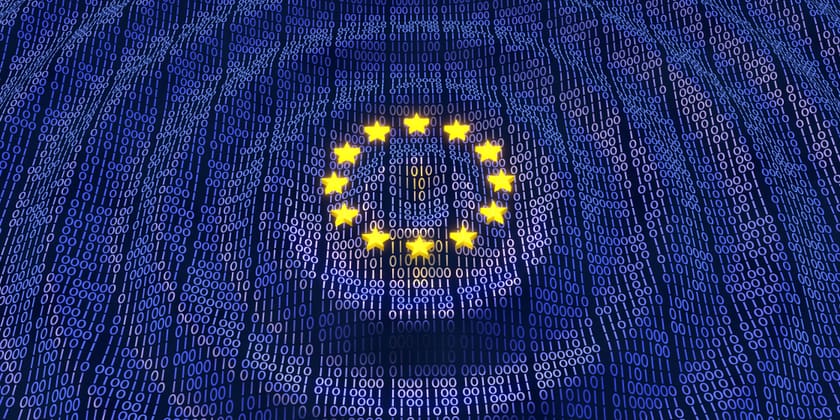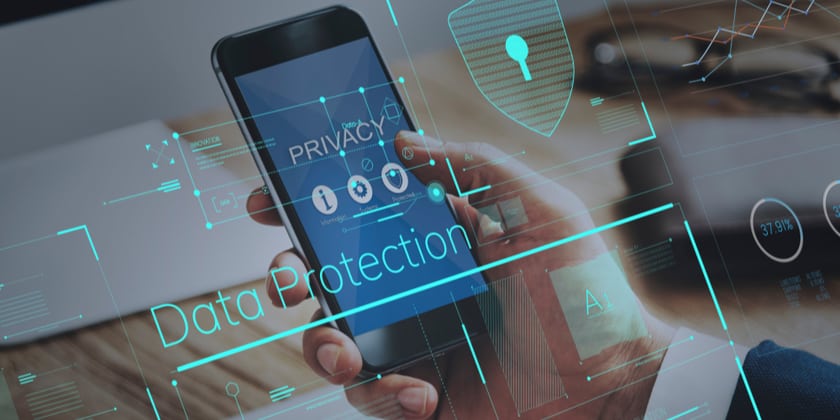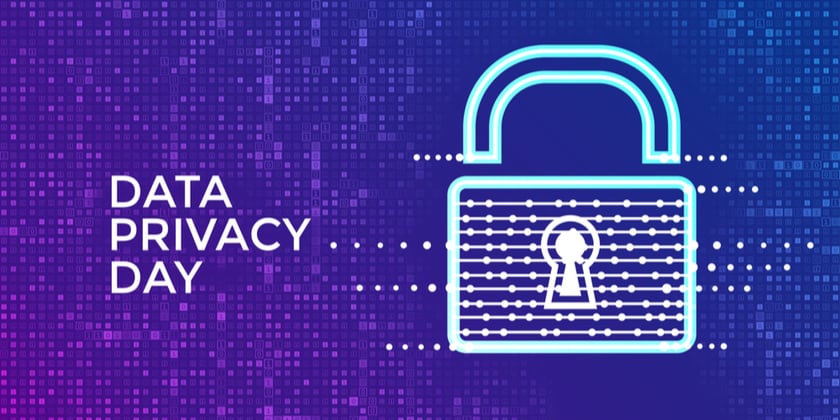Data Privacy Day is a day designed to raise awareness of the importance of safeguarding information and improving data protection processes.
Data privacy has never been more important, especially at the current time with large swathes of the workforce continuing to work from home. Cyber attacks have created unprecedented challenges for organisations and highlighted the need for a greater emphasis to be placed on data protection during these challenging times.
Data Privacy Day enables organisations to reflect on current data privacy legislation and identify areas that could be improved.
What is Data Privacy Day?
Data Privacy Day is an international initiative that occurs every year on the 28th of January to promote data protection best practices and raise awareness of the importance of data privacy.
Created by the Council of Europe in 2006, the event commemorates the January 28, 1981, signing of Convention 108, the first legally binding international treaty dealing with privacy and data protection.
Data Privacy Day encourages individuals to ‘Own Your Privacy’ by learning more about how to keep their information safe online and on social media, whilst businesses are encouraged to ‘Respect Privacy’ by safeguarding consumer data and securing it from unauthorised access.
Importance of Data Privacy
When consumers give their personal information to companies, they entrust them with this data and expect the proper measures to be taken to protect it. Unfortunately, as we’ve seen from the many data breaches over recent years, this isn’t always the case.
The careless mismanagement of personal data can have devastating consequences for organisations including; financial sanctions, reputational damage, and a loss of consumer trust. In a recent report conducted by PWC, 87% of consumers said they would take their business elsewhere if they thought a company wasn’t handling their data responsibly. Clearly, the stakes are high so organisations must ensure that personal information is protected.
The Impact of Data Privacy Regulations

Data protection regulators have set the standards and requirements that organisations must adhere to in order to be secure and compliant. The most notable of all these privacy laws is the GDPR. The GDPR has massively impacted the global privacy landscape since its implementation in May 2018. The legislation was introduced to give EU citizens more control over their personal data and to hold organisations accountable for the collection, handling and processing of customer data.
The regulation has had a ripple effect that’s prompted many other countries to take a closer look at their own security and privacy laws. In the US, the California Consumer Privacy Act (CCPA) came into effect on the 1st January 2020 to regulate how businesses all over the world handle the personal information of California residents. The act was heavily inspired by the GDPR, sharing the same key principle of protecting the privacy of individuals.
Brazil has also followed suit, and in August 2020, the country introduced the General Data Protection Law for Brazil (LGPD). Like the GDPR, the LGPD outlines how organisations can legally collect, process, handle, secure, and destroy personal data.
With a greater emphasis now being placed on data privacy, we can expect more global data protection laws to come into effect as individuals demand greater control over how their data is being used and processed.
Use Data Privacy Day to Improve Data Protection Practices

Data Privacy Day may be a one-day event, but good data protection practices should be implemented all year round. Today should act as a timely reminder that organisations must have robust practices and safeguards in place to protect data and keep it secure. There are a number of steps that organisations can take to ensure they’re on the right track:
1. Conduct regular audits
To evaluate if your current data management practices are up to scratch, you’ll need to conduct regular audits to assess if any changes need to be made. Your audits should look at what data is held, where it is held, where it was sourced, length of retention, its use, access rights and how it is shared.
This will help guide what appropriate data protection measures need to be put into place to keep the personally identifiable information of customers secure. Your employees should also be educated on data privacy and made aware of the important role they play in protecting personal information.
2. Adopt a privacy policy framework
If your organisation has to comply with multiple data protection regulations, you should consider adopting a privacy policy framework. These frameworks provide a formal structure for managing the security of personal data and will ensure compliance with the relevant laws and regulations.
The two main privacy frameworks are ISO27001 and the NIST Privacy framework. ISO27001 lays out a best practice approach to information security management. It’s designed to protect the confidentiality, integrity and availability of data and identify areas of risk that could compromise the security of your organisation. NIST is also another highly respected framework that’s used by organisations across the world to standardise processes, reduce risk and improve cyber security operations.
3. Be transparent
The level of awareness and concerns around data security has never been greater. Consumers are all too aware of how their personal data can lead to consequences such as identity theft and can be misused in the wrong hands. Organisations need to be proactive and take all the necessary steps to protect this data and ensure good information governance.
If your organisation can demonstrate just how seriously it takes privacy, it can result in greater levels of trust, transparency and creates an opportunity for competitive advantage.
4. Pay close attention to third party service providers
In recent years, it’s become the norm for organisations to use a host of different third party providers to support core business functions. However, these parties will often have access to your company’s internal systems and data which can pose a huge security and compliance risk.
To protect sensitive data, you should ensure that the proper guidelines and updated policies are adhered to by your external providers. Under the GDPR, and indeed many of the other data protection laws, organisations are legally bound to provide assurance to regulators that their third-party service providers are compliant by having good cyber security and privacy controls in place.



